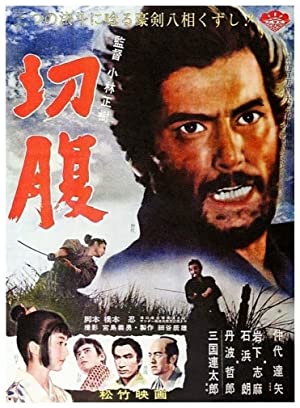Details
Harakiri (1962) is a powerful and thought-provoking Japanese samurai film that delves into the themes of honor, loyalty, and the harsh realities of the feudal system. Directed by Masaki Kobayashi, this critically acclaimed masterpiece takes place during the Edo period in Japan.
The story revolves around a ronin, a masterless samurai, who arrives at a noble lord's palace requesting to perform the ritual suicide known as seppuku. However, the ronin is informed about the tragic death of another ronin who had made the same request earlier. Intrigued, the ronin reveals how their lives are interconnected, questioning the integrity of the feudal clan.
As the narrative unfolds, the film explores the corrupt and dishonorable practices prevalent within the samurai society. It exposes the unjust treatment of the lower-class warriors and the exploitation of their devotion to the code of honor, Bushido.
Harakiri, renowned for its captivating storytelling and exceptional performances, challenges the audience's preconceived notions of honor and duty. It presents an emotional and thought-provoking examination of the moral dilemma faced by individuals trapped in a rigid and unforgiving social structure.
With stunning black-and-white cinematography, mesmerizing fight sequences, and a haunting score, Harakiri is an unforgettable cinematic experience that continues to resonate with audiences today. It stands as a testament to the power of storytelling and serves as a stark reminder of the consequences of blind allegiance to tradition.
Also Known As:
HarakiriRelease Date:
04 Aug 1964Writers:
Yasuhiko Takiguchi, Shinobu HashimotoAwards:
9 wins & 3 nominations

